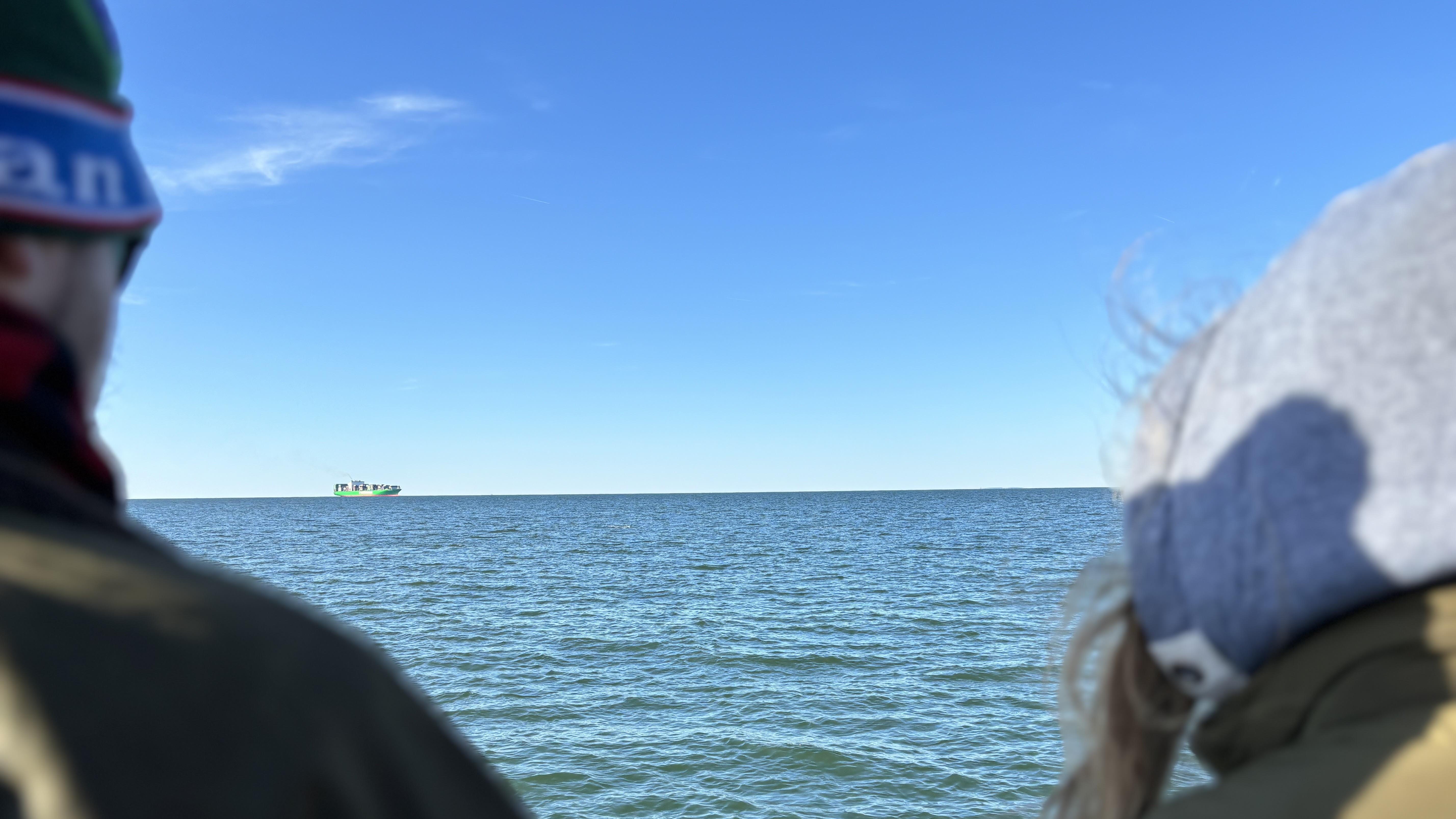Hear sounds from the whale tour:

Learn about humpbacks from aquarium nature exploration specialist Mike Mizell:

Humpback whales are passing by Virginia Beach on their annual northward migration to spring and summer feeding grounds.
That means the Virginia Aquarium is hosting its annual whale watching tours. Last week, WHRO tagged along to learn more.

The whale watching boat sits docked behind the Virginia Aquarium on March 1.
As the tour boat steered through Rudee Inlet into the Atlantic Ocean, Melanie McKinley and her son Patrick sat on the bow, braving the cold to ensure a good viewpoint.
They'd traveled from Ohio to visit a relative and hoped to get a glimpse of their first whale.
"I'm 62 years old, I've not seen one yet," Melanie McKinley said. "I might not see one ever again. It would just obviously be once in a lifetime."
Less than an hour later, she got her wish.
A humpback breached in the distance – launching its full body out of the water. "That's life-changing folks," an aquarium tour guide said over the loudspeaker.
For another hour or so, the boat followed the whale as it regularly surfaced to breathe through its blowhole and showed off its glistening gray back.
Bottlenose dolphins also gathered around it.

A humpback whale surfaces to breathe off Virginia Beach on Friday, March 1.
Boats program specialist Mike Mizell has been with the Virginia Aquarium for 25 years and said he's experienced more whale sightings in recent years than when he started.
"We're seeing more and more of them," he said, perhaps the effect of federal measures to protect the whales.
Warmer waters driven by climate change also seem to be shifting humpbacks' patterns by drawing them closer to shore, scientists say.
Whales were common along the Mid-Atlantic coast in colonial times, but only became known to visit Virginia's coastal waters around the 1990s, the Virginia Beach aquarium told the Washington Post in 2003.
Mizell said they like to feast on menhaden and bay anchovies in Virginia waters, after fasting in their winter breeding grounds in the Caribbean.
He said local residents can help protect those species by avoiding harmful fertilizers and pesticides that can run off into the water and kill fish.

A view from the bridge of the Virginia Aquarium's whale watching boat.
Ben Purvis, a Virginia Beach resident, said it was fun to experience the area from a tourist's eyes for the day. He said he's familiar with a lot of local wildlife, but had never before seen a whale.
And he was surprised by more than just the sight, when the whale exhaled from its blowhole just upwind of the tour boat.
“I guess I never thought about what a whale would smell like.”
Think of a human’s bad breath – but exponentially larger.
The aquarium has extended its whale tours through this Sunday, March 10. Annual dolphin tours will launch later this spring.
Editor's note: A few days after WHRO joined the whale tour, two dead humpbacks washed ashore in Virginia Beach. The aquarium's stranding response team is working to determine the causes of their death.


